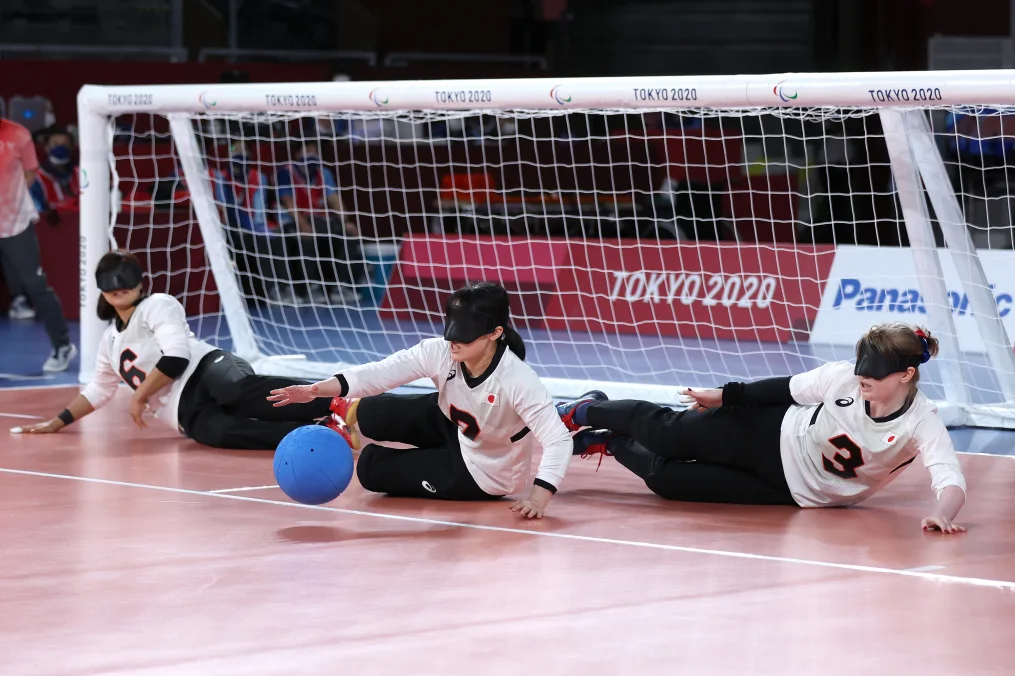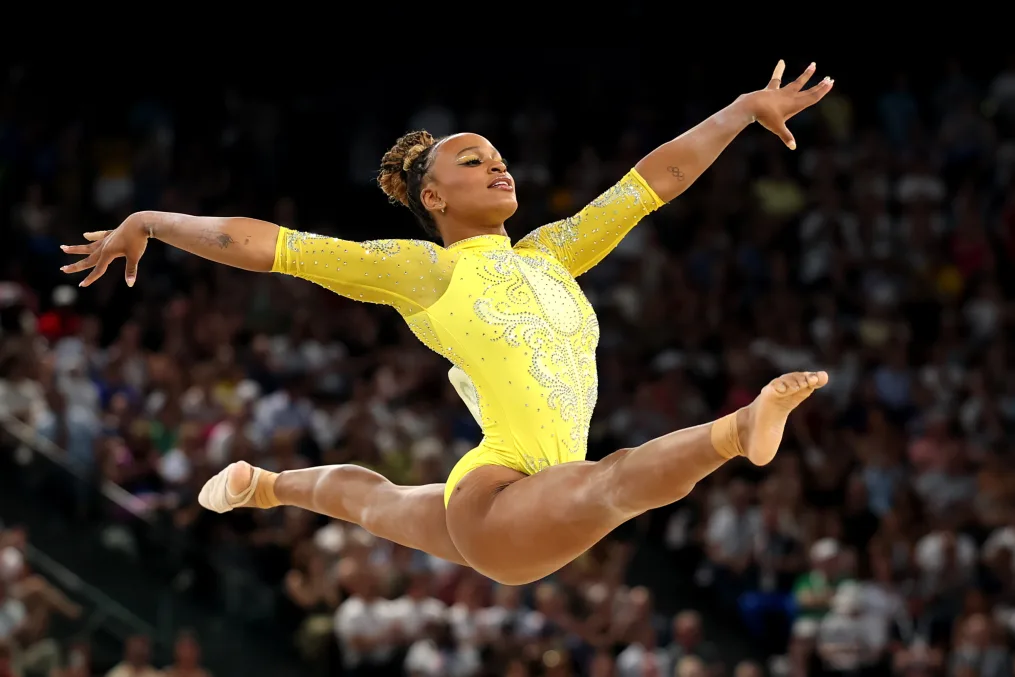In the men's gymnastics pommel horse final on Saturday, specialist Stephen Nedoroscik removed his glasses before approaching the apparatus. Standing firmly on the mat, he earned his second bronze medal at the Paris Olympics.
In addition to Nedoroscik, several visually impaired athletes have excelled in their sports. Irish swimmer Daniel Wiffen took off his glasses before winning the gold in the 800m freestyle. Brazilian gymnast Rebeca Andrade won the vault gold in the 2020 Tokyo Olympics despite not seeing the apparatus clearly, and secured a silver in the individual all-around competition on Thursday. Goalball players from Team Japan defend against Team Brazil at the Tokyo 2020 Paralympic Games.Kiyoshi Ota/Getty Images
Goalball players from Team Japan defend against Team Brazil at the Tokyo 2020 Paralympic Games.Kiyoshi Ota/Getty Images
Last week, Nedoroscik also helped the U.S. men's team end a 16-year team medal drought with a bronze in the finals. He shared with reporters that he doesn't need to see the horse to perform his routines. “It’s all about feeling the rotations,” he told CNN. “You don’t need to see what you’re doing; you just do it based on feel.”
Nedoroscik's success exemplifies how athletes can adapt to visual impairments and achieve top performance levels. Through neural plasticity, the brain compensates for impaired vision by enhancing other senses, allowing athletes to perform precise movements based on touch and proprioception. This adaptation enables them to compete effectively, even without perfect vision.







